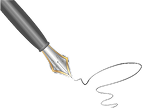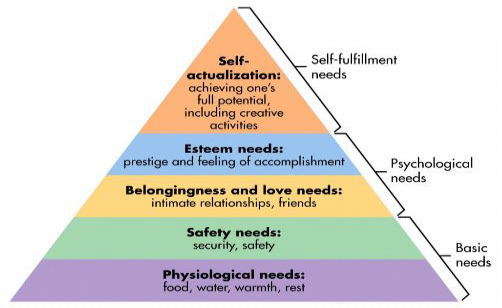Introduction
Organizational behaviour may be defined as the study of the performance of groups and individuals in the organization. It also studies the activities which happen in the company. This report is based on the case study of Sharpe Designs. It is a successful software company and operates its office in West London. In this report, an attempt is made to understand the organisation behaviour of the company. In the first part of the report, an understanding is made to know about the culture of the company by using one typography model. In the second part, it focuses on the level of motivation among employees of the firm. Apart from that, in the third part of the report, an understanding is made to understand the situational leadership.

Stuck with your Assignment?
Hire our PROFESSIONAL ASSIGNMENT WRITERS and Get 100% Original Document on any Topic to Secure A+ Grade
Get Assignment Help
1. Type of the Culture that was Evidence at Sharpe Designs
Organisation culture is basically a set of ideas, values, beliefs and ideology of the organisation and individual (Shajahan, 2007). A culture of the Sharpe designs is described by the Charles Handy Model. According to this model, there are four types of culture which are followed in the organisations. These are power, role, task and the person's culture. Their roles are described as follows:
1. Power Culture: In the power culture, the authority remains with few individuals. In this culture, only a few rules and regulations are made in the organisation. So this culture is the same as the culture in the Sharpe Designs. In Sharpe's designs, a flat organisation structure is followed in which 3 directors are appointed to lead the teams which are related to sales and marketing, accounting and finance and product design. In the project department of the company, they should also report their work to the line manager. In this company, all the decisions are taken by the management (Einarsen, Aasland, and Skogstad, 2007).
2. Role Culture: This culture also exists in Sharpe Designs because the company operates their work by following a flat organisation structure and different departments are made in the organisation like sales and marketing, accounting and finance as well as product and design. In this structure, all the roles and responsibilities are delegated to the people according to their department (Poston, 2009).
3. Task Culture: Task culture may be described as forming a special team when a company has to solve any problem and deal special project. The task culture is also operated in the Sharpe design because, in the product design department, they include two people from other departments for input and who have expertise in the field. This is adopted by the company because they believe that it is an innovative approach.
4. Person Culture: In that culture, all the individuals believe that they are important to the organisation because various policies are made in the Sharpe Designs for the individuals. The company adopts employee engagement and they reward the workers. Some employees also run very different kinds of schemes in the organisation individually. (Zalenski and Raspa, 2006).
Comparison of the changing culture and previous culture after relocation: The culture of the company entirely changed after the decision to relocate was made by the management. The culture changed because the management of the company did not consult with the department for relocation. But before relocations, all the decisions were made with the consultation of an employee. In the previous culture, all the employees were happy with the environment and with the company but after relocations, workers were not satisfied with a new culture. In the previous culture, the management forced the employees to work with enthusiasm but now the management told if they did not like the culture they had the option to leave the organisation. As per the comparison of both cultures, it can be found that the previous culture is better than the new culture.
2. Assess the Level of Staff motivation at Sharpe Designs
The level of staff motivation in the Sharpe Designs before the relocation was good (McLeod, 2007). The company launched various programs for employees that motivated them and that further resulted in increasing the productivity of the organisation. According to Maslow's hierarchy of needs, the level of motivation among employees is good. The Maslow hierarchy of needs is divided into five needs. These requirements and the level of motivation among staff are as follows:
1. Physiological Needs: This is the basic need of any individual which includes food, water, warmth and rest. According to this need, the level of motivation among employees is high because Sharpe designs provide a good workplace to their workers. The place of work is bright, vibrant and of an open design. The pay of the employees is also favourable and it is more than other workers of other organizations (Chand, 2015).
2. Safety Needs: Safety needs comprise security law, order etc. The level of satisfaction for this need is high because the company gives various kinds of perks and insurance policies to employees. Like, they have provided free doctor visits, restaurants, gyms, spas etc.
3. Social Need: This need consists of friendship, relationship, affection and love from work groups, family, friends etc. The level of motivation among employees of Sharpe Design is very high. The company provides various kinds of facilities to employees where they can interact with each other. They can also chat with another employee. The company provided the employees with communal areas in which they interact with other employees. The company has also launched various types of employee engagement programs where all workers are involved in the decision-making process (Bjugstad and et.al. 2006).
4. Esteem Need: These needs include achievements, mastery, independence, status self-respect etc. According to this, the level of motivation among employees is high because the employees are provided with various kinds of rewards for their work. The organization provides different roles and responsibilities to employees and employees get respect from the company. The achievement level of employees is also very high because they give good productivity to the company.
5. Self-actualization Need: This need includes realizing personal potential, self-fulfilment, personal growth and peak experiences. The level of motivation is low because an employee of the company did not realise the importance of personal growth. For any work, the firm has to encourage the employees the work as without it they will not be able to perform effectively (Chen and Silverthorne, 2005).

Illustration 1: Maslow Hierarchy of Need
3. The Usefulness of Hersey and Blanchard's Model of Situational Leadership in Explaining Steve Linford's Approach
As Samantha is not self-motivated, but they are successful in their work at Sharpe Designs because they are guided by Steve Linford. He has to guide Samantha in many situations so they use the Hersey- Blanchard situational leadership model. This model is very helpful because by it they can easily provide direction to Samantha for handling the situation and the problem. According to this model, there are two principles in situational leadership, one is leadership style and the other is the maturity level of the people. The first principle style is based on the four styles (Counsell, Tennant and Neailey, 2005). These styles are: telling, selling, participating and delegating.
1. Telling/ Directing: In this, Steve Linford has to focus on tasks which are given to Samantha and they do not have to emphasize their relationship. Samantha is not very confident in their job and afraid of doing the work. So According to this, style Steve Linford has given the work to Samantha. They also gave advice to her that she should follow an appropriate structure for the work in their position. They are not concerned about their relationship. According to this, they have to identify why Samantha is not self-motivated (Hooke, 2007).
2. Selling/Confidence: According to this, if Samantha has done her work successfully first they will try to de-motivate Samantha so she can not gain overconfidence in their work. According to this style, they always hear to Samantha what she thinks about a particular problem and always tell the improvements which she has to make in her work.
3. Participating/ Supporting: According to this style Steve Linford encouraged Samantha for the work they refused to do. They also found the reasons why they refused to do so. After when they identified the reasons, they told Samantha that they could cooperate and do that work. (Mullins, 2007).
4. Delegating/ Observing: According to this style if Samantha is motivated with their work and if she has the courage to do all the work on their own, then they leave Samantha alone to do all tasks independently. However, according to this style, they always monitor work of Samantha whether it is appropriate or not.
So by adopting this style, this model is helpful for Steve Linford in guiding Samantha at their work because they lack of self-belief in their task. She thought that she was very small for that job position. So, by following that model Steve Linford guides Samantha in a better way (Lowe, Likens and Cosentino, 2006).
Conclusion
From the above report, it can be concluded that organisational behaviour plays a very important role in Sharpe Designs. A report throws a light on the organisation culture of the company because a relocation decision which has been made is beneficial. All employees are satisfied with their jobs which results in increasing productivity. But when the decision was made to relocate, all the employees were dissatisfied with the company and they wanted perfect leadership to carry out the activity. So the company has to follow perfect leadership in their organisation to understand the behaviour of employees.
References
- Bjugstad, K., and et.al. 2006. A fresh look at followership: A model for matching followership and leadership styles. Journal of Behavioral and Applied Management.
- Chen, J.C. and Silverthorne, C., 2005. Leadership effectiveness, leadership style and employee readiness. Leadership & Organization Development Journal.
- Counsell, R., Tennant, C. and Neailey, K., 2005. The development of a model to support synchronous change. Measuring Business Excellence.
- Einarsen, S., Aasland, M.S. and Skogstad, A., 2007. Destructive leadership behaviour: A definition and conceptual model. The Leadership Quarterly.
- Hooke, J.M., 2007. Complexity, self-organisation and variation in behaviour in meandering rivers. Geomorphology.
- Lowe, W.H., Likens, G.E. and Cosentino, B.J., 2006. Selforganisation in streams: the relationship between movement behaviour and body condition in a headwater salamander. Freshwater Biology.
- Mullins, L.J., 2007. Management and organisational behaviour. Pearson education.
- Poston, B., 2009. Maslow's hierarchy of needs. surgical technologist.



 Company
Company


















